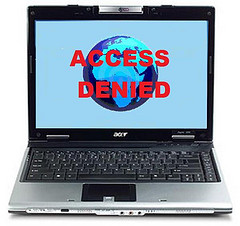The Origins of the Net Neutrality Concept
The Internet has quickly become an essential infrastructure and part of everyday life. Business, education, communication, government, healthcare, and emergency-responders rely on it the same as individuals do. The Internet was devised to provide open and easy access to interaction and information sources. “Net neutrality” is the idea that Internet users should be able to access any web content or application, at any time, without restriction from Internet service providers. It was expected that the Internet would operate as telephone and telegraph companies did, following the Federal Communications Commission’s common-carrier requirements and “indifferently” serving all who seek their services.
Enforcement Issues
Net neutrality, however, has come under fire in the past decade. As broadband replaced dialup service, cable companies, power companies, and others became Internet providers. These companies weren’t bound by common-carrier rules. Thus, in 2005 the FCC followed a recent Supreme Court decision and lifted common-carrier requirements from all broadband providers, including phone companies. Instead the FCC instituted a set of “Internet Freedoms,” principles intended to guide the broadband industry.
Just three years later, the FCC cited a major broadband provider for blocking transmissions created by a particular content provider. The broadband company sued, claiming that the FCC wasn’t empowered to enforce net neutrality, and suggesting that their “Internet Freedoms” weren’t enforceable. The broadband company won.
After the 2005 rule changes and the subsequent lawsuit, many are concerned that an Internet provider cannot be stopped from choosing which information sources can flow through quickly and freely, or slowly, or even not at all. Advocates of net neutrality believe that current regulatory and legal systems aren’t set up to respond to these adverse actions in a timely manner, especially since the Internet itself has developed and changed so quickly over the years. Internet providers counter that bandwidth is scarce, innovation requires capital investment, and they shouldn’t be required to “give away the store.” They maintain that current FCC and Federal Trade Commission rules provide all the constraint necessary.
Looking Forward
All the stakeholders agree that openness is good: the devil, though, is in the details. How do we define “openness,” and how much should it be regulated by law?
Even though net neutrality is at risk, the Internet began in part as a response to communications companies’ monopolies, market domination, and reluctance to innovate. It will be fascinating to observe new innovations that emerge as the battle continues.
Citations:
- Photo By Mike Licht, NotionsCapital.com
Peter Wendt is a writer from Austin, Texas. Because conducting research on the Internet is a crucial part of his career, he is a major advocate for net neutrality, and recommends using one of the top hotspot providers for the quickest Internet access available.

